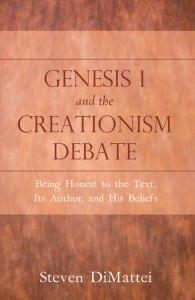In attempting to contribute to a larger cultural dialogue that promotes thinking and the elevation of rational discourse, I am convinced that any sort of meaningful conversation between theists of all denominations, atheists, and biblical scholars must start from the text, where the biblical text serves as the meeting ground. Can the scientific study of the Bible achieve such a goal?
I am also deeply disappointed by the the low level of public knowledge and education about the Bible. Both the word “Bible” and the biblical texts are so riddled with personal and cultural presuppositions, misuse, abuse, and misunderstanding, that it is even hard to have an intelligent and informed conversation on the topic. Additionally, many automatically invoke ideas of what the Bible is based on preconditioned cultural norms, the authority of long-standing interpretive traditions, what such-and-such faith community says the Bible is, personal theological agendas, etc., rather than really understanding the biblical texts each on their own terms and in their own unique historical and literary contexts.
Can the Bible be studied scientifically and if so what would that entail, and for what purposes might one (or a culture) engage in such a study? I am committed to devoting the rest of my career to this endeavor.
By scientific study I mean the objective study of the biblical texts themselves. I have in the past even used the model of science to illuminate this simple methodology. Science, for example, observes the phenomena of nature, records its data, and formulates hypotheses that best explain the data under observation. Hypotheses are then verified, denied, or reformulated depending on the data.
The study of the Bible can proceed along similar lines. For example, I am currently working on a book that attempts to collect a certain type of textual data — contradictions. In biblical studies, and separate from the more popular and base use of this provocative word, the data collected through the Bible’s various contradictions leads one to conclude that the Bible is the product an editorial endeavor that brought together diverse and divergent texts, where vastly divergent authors express their individual and varying ideologies, beliefs, and political orientations, and in vast and divergent ways throughout the 70+ texts written between the 9th c. BC and the early 2nd c. AD, and under vastly different historical circumstances. I can share some of the chapters I’ve written with readers if they’d like. I’m specifically working with the Pentateuch now.
My point: these textual data, the contradictions, strongly support the hypothesis that the Bible is a collection of competing texts, competing authorial agendas, competing portraits of Israel’s deity, competing worldviews, and competing theologies and beliefs, etc. This is the fact of the matter. No other hypothesis explains the textual data as well as source-criticism. But this is not my goal; I’m interested in the conversation that ensues from here, that ensues from acknowledging this fact. Where do we go from there?
Other hypothesis can be drawn as well from the textual data, i.e., from the biblical texts, from these texts’ literary contexts (the textual data of ancient Near Eastern texts, etc), and from archaeological data. From this data, one can put forward a pretty powerful demonstration about what the Bible is and is not, against many of the opinions shared by Christians, and the public at large.
In the public arena, for example, what is usually discussed when the Bible is invoked is theology, or interpretive authoritative traditions that expound what the Bible is, or heresy, or what such-and-such faith community has said the Bible is, or one’s personal view of the Bible due to preconditioned cultural presuppositions, etc. I adamantly believe that studying the Bible with attention to its textual data, and understanding such data in its historical and literary contexts can offer up some meaning dialogue. In the next post, I will display some of these textual data, and the conclusions they seem to suggest.





